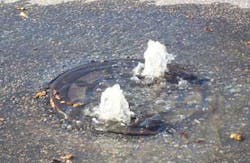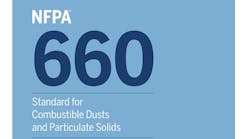EPA fines Mississippi city for sewage overflows
The U.S. Environmental Protection Agency (EPA) is fining the city of Starkville, Miss., over sanitary sewer overflows in the public collection system that occurred over a five-year period. The financial penalty will be imposed retroactively, according to the city public works director Doug Devlin, who announced the measure to the Starkville Board of Aldermen.
The EPA also insisted that the city start to enforce more consistently and aggressively its rules on the discharge of fats, oils and grease (FOG) into the public sanitary sewer system, to make sure future overflows are prevented. The measure follows an EPA inspection of the city sewer system on Jan. 29 and Jan. 30, which took place in the presence of a representative of the Mississippi Department of Environmental Quality (MDEQ). In the meantime, Devlin said that public works officials would make sure they gain more understanding of the EPA laws.
RELATED: US water and sewage systems in dire need of infrastructure improvement
The Starkville Daily News quoted Devlin as saying that he was unaware of the exact value of the fine that the city will have to pay, but explained that he would talk to EPA officials, together with city attorney Chris Latimer, via teleconference to discuss the details of the penalty. He added that the main reason for having the fine imposed on the city is the discharge of fats, oils and grease into the collection system.
The EPA will continue to audit all municipalities in the state of Mississippi which have treatment permits of at least 10 million gallons per day. Starkville was one of the first where evaluations were made. The city will now have to dramatically reform the way it operates its sewer collection system, Devlin told the board. The way the system has been managed so far was obviously not compliant with EPA regulations and the board would have to work hard, together with the public and customers, to ensure that deposits of grease into the sanitary sewage system are treated according to regulations. If they fail to do so, the city will have to pay more fines for every month in which an overflow occurs, Devlin explained.
He also emphasized the fact that the city had been transparent about the breaches and notified both EPA and MDEQ about them. Overflows were reported as soon as they had been detected by Starkville officials but others who had not reported their overflows would pay lower fines, Devlin claimed. According to the public works director, both he and MDEQ were "shocked" when they found out about the fines, as typically an agreed order is issued, instead of penalties or fines. An agreed order is a document in which the city has to present its detailed improvement plan to deal with the issues and both sides team up to achieve results.
The EPA guide for evaluating capacity, management, operation and maintenance programs of collection systems states that every wastewater treatment plant operator has to make sure that both new and rehabilitated sewers are properly designed, constructed and tested before being utilized.


